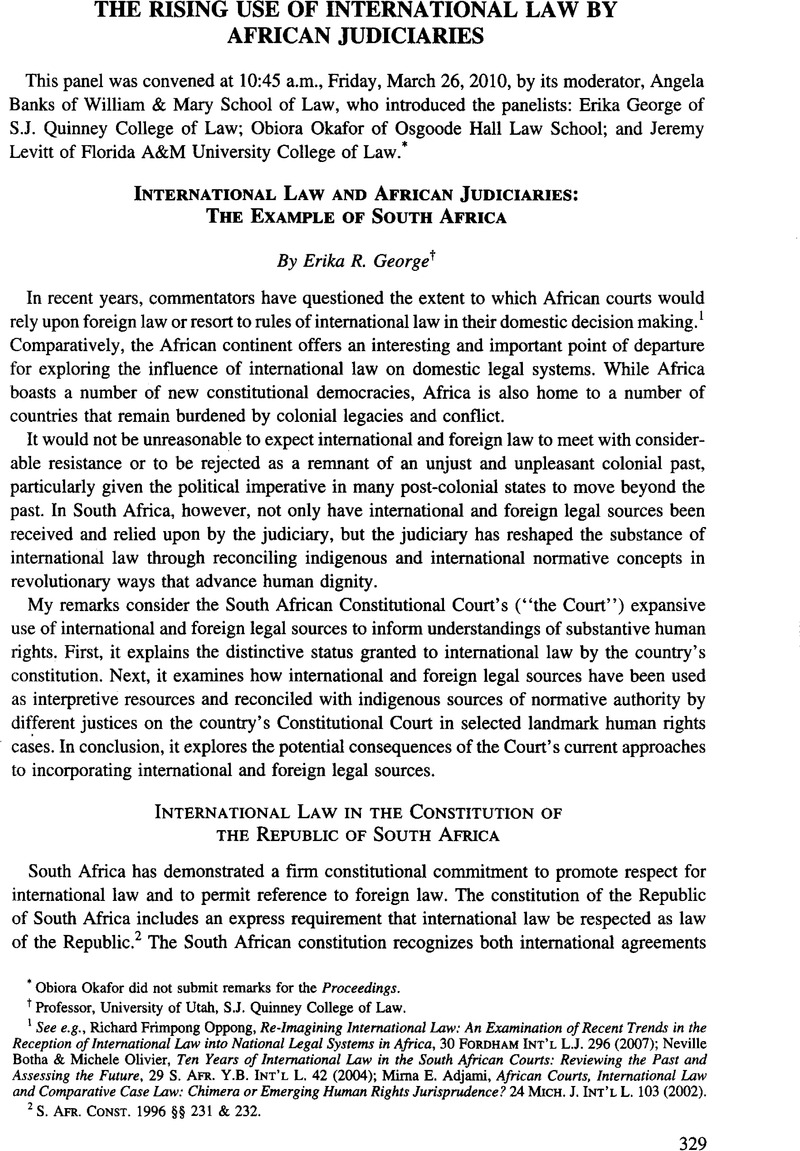Published online by Cambridge University Press: 28 February 2017

* Obiora Okafor did not submit remarks for the Proceedings.
1 See e.g., Oppong, Richard Frimpong, Re-imagining International Law: An Examination of Recent Trends in the Reception of International Law into National Legal Systems in Africa, 30 Fordham Int’l L.J. 296 (2007)Google Scholar; Botha, Neville & Olivier, Michele, Ten Years of International Law in the South African Courts: Reviewing the Past and Assessing the Future, 29 S. Afr. Y.B. Int’l L. 42 (2004)Google Scholar; Adjami, Mima E., African Courts, International Law and Comparative Case Law: Chimera or Emerging Human Rights Jurisprudence? 24 Mich. J. Int’l L. 103 (2002)Google Scholar.
2 S. Afr. Const. 1996 §§ 231 & 232.
3 The constitution of Malawi also grants status to international law in a manner comparable to South Africa. Maluwa, Tijanyana, The Incorporation of International Law and its Interpretational Role in Municipal Legal Systems in Africa: An Exploratory Survey, 23 S. Ant. Y.B. Int’l L. 45 (1998)Google Scholar (surveying 52 African constitutions and suggesting that the role of international law in local legal systems remains an open question).
4 S. Afr. Const., supra note 2, at art. 39.
5 State v. Makwanyane, Case No. CCT/3/94 (1995), para. 35, 1 Lrc 269.
6 Minister of Home Affairs v. Fourie, Case No. Cct 60/04, para. 102.
7 Id. at para 104.
8 Government of the Republic of South Africa v. Grootboom, 2000 1 SA 46 (CC), paras. 231-35.